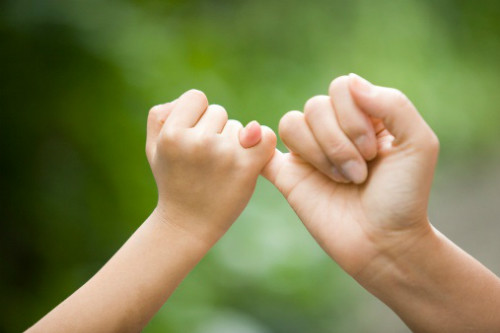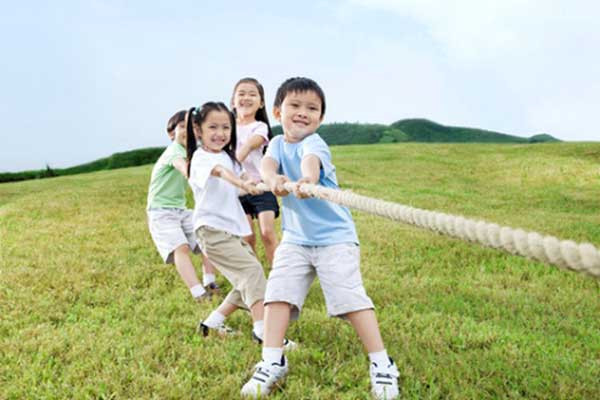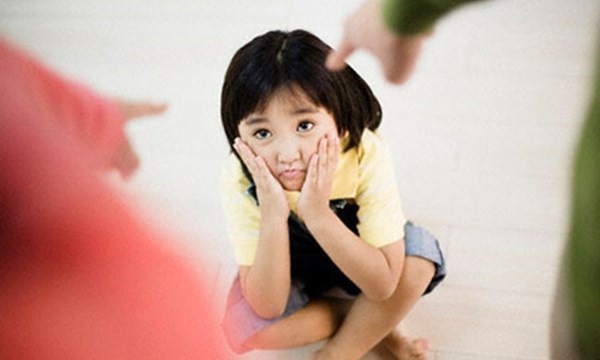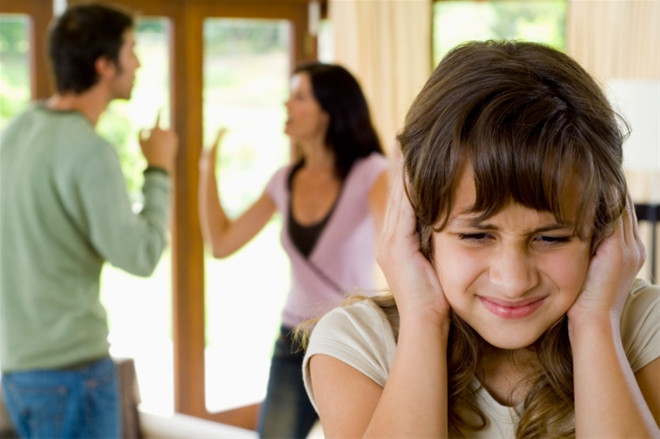10 things children don't like about their parents
(Baonghean.vn) - In raising children, many parents do not hesitate to invest money and effort to make their children healthy physically and mentally, but they neglect to nurture their children's souls. They do not realize that the atmosphere in the family is directly affecting the psychological development of children. In order for their children to develop well in mind, body, and beauty, parents should take the time to listen to their children's confidences.
1. Not understanding your child
In family life, children always think that “parents are not the people who understand them best”. Because parents always think that their children are still young and do not understand things. If this continues, children will never dare to speak their minds.
Whenever children have something to say, parents often brush it off, do not listen, and if they do listen, they judge it subjectively. For every action the children do, whether right or wrong, if they are not satisfied, parents scold them, saying it is their fault. Meanwhile, no one asks the children why they did it, what the reason is. As a result, the child gradually loses trust in the family, separates himself and is no longer close to family members.
2. Bias
Parents' favoritism causes some children to live in the biased eyes of their parents from a young age: they are all your children but they have different treatment in terms of pocket money, clothes, going out..., which will create darkness in the child's growth. Many studies have found that parents' favoritism will cause negative effects on the child's mental health, leading to behavioral deviations from when the child is a child, a teenager, and even until adulthood.
3. Broken trust
 |
| Don't break your promises to your children. Illustration photo |
Breaking trust also means losing credibility. When adults do not keep their word, not only do they lose their credibility in the eyes of children, but it is also detrimental to the growth of their children. Children who have not yet formed the concept of keeping trust will feel that a person who speaks can do without responsibility, agreeing to other people's business but also not doing it, so children can easily develop bad habits such as "carelessness" and "not keeping their word". After growing up, this habit of breaking trust will cause children to lose many friends and opportunities.
4. Underestimating children's strengths
This stems from the parents' desire to have their children grow up to be dragons. However, everyone has both advantages and disadvantages. Because parents live with their children every day, what they see is almost only their disadvantages and ignore their advantages.
Therefore, parents often compare their children’s weaknesses with other people’s strengths, even embellishing and exaggerating other people’s children. By doing so, you want to show your child an example, but in reality, it causes great harm to the child.
Every child has his or her own strengths and weaknesses. Although children's aptitudes are different, some learn quickly or slowly, and some have high or low achievements, judging a child's good or bad cannot be determined solely by this aspect.
5. Not patiently answering children's questions
 |
| Do not answer children's questions carelessly. Illustration photo |
Children are in a stage where curiosity is very strong, their small brains always have many “why” questions. Many parents find their children annoying, and give them a cursory answer. Although children are still very young, they can feel their parents’ attitudes, their parents’ cold words make them think they shouldn’t ask, or shouldn’t ask these questions, which makes them lose confidence in their own abilities.
Parents' superficiality also makes children gradually lose enthusiasm for raising issues, and gradually lose their curiosity and desire to learn. Children trust their parents' words so much that if you give them wrong answers or half-hearted explanations, they will think that it is the truth and remember it. Once a wrong concept has entered their brain, it will be very difficult to change it.
6. Imposition
Adults often have a habit of always giving their opinions to impose on their children. Children do not have the right to decide anything, parents arrange everything for them. What to study, what to do, who to love, who to marry, etc. are all up to parents. Whether they like it or not, children have to follow it.
Have your parents ever asked you what you want and need? Have your parents ever given you the right to choose and decide what is yours? If so, only a few parents do this. Many times, children are very tired and pressured by the choices they make for their future. However, do their parents ever agree or accept their choices? So how can children trust and share their problems with their parents?
7. Not welcoming your child's friends
 |
| Children must be able to play with their friends. Illustration photo |
When children grow up, they also hope to have some real friends, to share their joys and sorrows with them, and I believe that mothers certainly expect good relationships from their children. However, some parents may not like their children's friends because they have some shortcomings such as being impolite or too calculating, bullying others, lying...
Children being able to build good friendships with others is the most basic type of relationship in communication, so you should respect the wishes and interests of both sides, so that children have the freedom to choose.
8. Criticizing children in front of others
Guests come to the house, friends gather and talk about each other's children. Many parents like to reveal their children's bad qualities in front of everyone, almost complaining, expressing how difficult it is to educate this child.
But you don’t know that you are just finding faults to criticize your child’s weaknesses. From there, you make your child feel like he or she is not good at anything, no one praises him or her, making his or her parents tired of him or her and the child will feel that his or her parents are dissatisfied with him or her, and he or she will gradually distance himself or herself from you.
 |
| Never despise your child. Illustration photo |
9. Angry parents
A child psychology research institute once conducted a psychological survey on more than 3,000 children, in which there was a category “What do you fear most about your parents?”, the most common answer was: “I fear most when my parents get angry”. One answer was very vivid: “I fear most when my father gets angry, he looks very scary!” Children are very sensitive to the moods of others. Therefore, when parents get angry, even if the cause is unrelated to the children, it will still affect their mood and behavior.
In life, it's best not to get angry with children, but if you do get angry, then explain to them what the problem is and what to do, and at the same time use actions to make them feel your care and protection.
10. Parents arguing
 |
| What children hate most is witnessing arguments between their parents. Illustration photo |
Don't be mistaken in thinking that when children are young, what their parents say or do has nothing to do with them. In fact, children with bright, clear eyes from a very early age remember the actions and words of their parents in front of them. There are some families where parents argue constantly, utter vulgar words, even get physical, causing the family atmosphere to often fall into a state of tension, which creates enormous pressure in the child's mind.
There are also parents who have not been compatible for a long time and are very quiet at home. Living in this family atmosphere, children are very inhibited, and in the long run, it will definitely damage their mental health, children become cold, stubborn, and grumpy...
Pear Flower
(Synthetic)
| RELATED NEWS |
|---|

